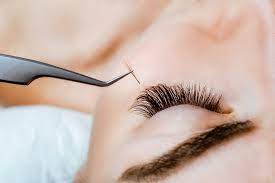
Psychologist Corinne Sweet advised dieters to stop seeing food as either “good” or “bad”, as this increases the chance of eating high-calorie foods.
She explained: “People talk about themselves in terms of being ‘good’ or ‘bad’ according to how habitually they eat or drink things, or whether they snack.
“‘I’ve been bad today’, might mean someone has had a chocolate bar or muffin with their coffee. Or ‘I’ve been good’ can mean they have abstained from the biscuit round in the tearoom.
She also said it was time to stop associating food with punishment or reward, and said: “People learn behaviours quite often with a punishment and reward value. ‘If I finish my homework I can have some chocolate’, or ‘after a hard day at work I deserve a drink.’
“Work cultures also are full of punishment and rewards, involving food and drink: the office party, a group meal out, a social event or celebration, cakes at leaving ‘do’s’ and birthday drinks.
“Temptation will always present itself. You have to be prepared, and be aware, ahead of time, that when you go somewhere, visit someone, go out for a meal, that temptation will be right there, in front of you.










